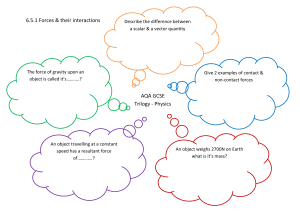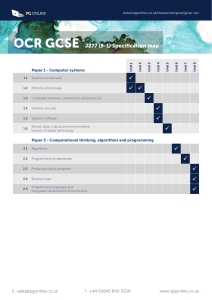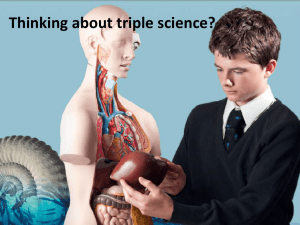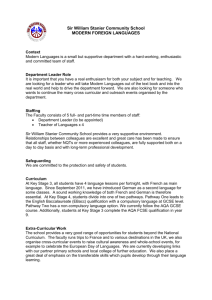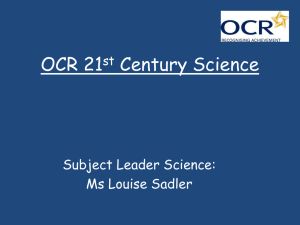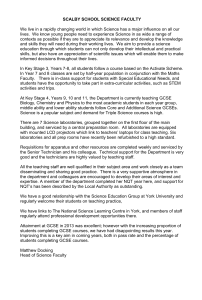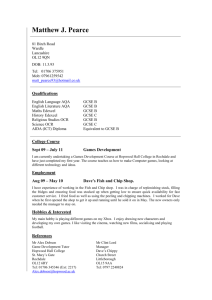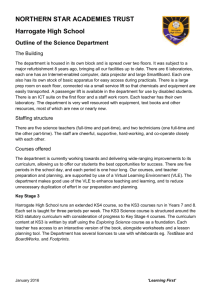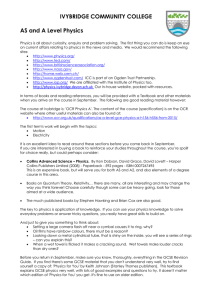Science - Chamberlayne College for the Arts
advertisement
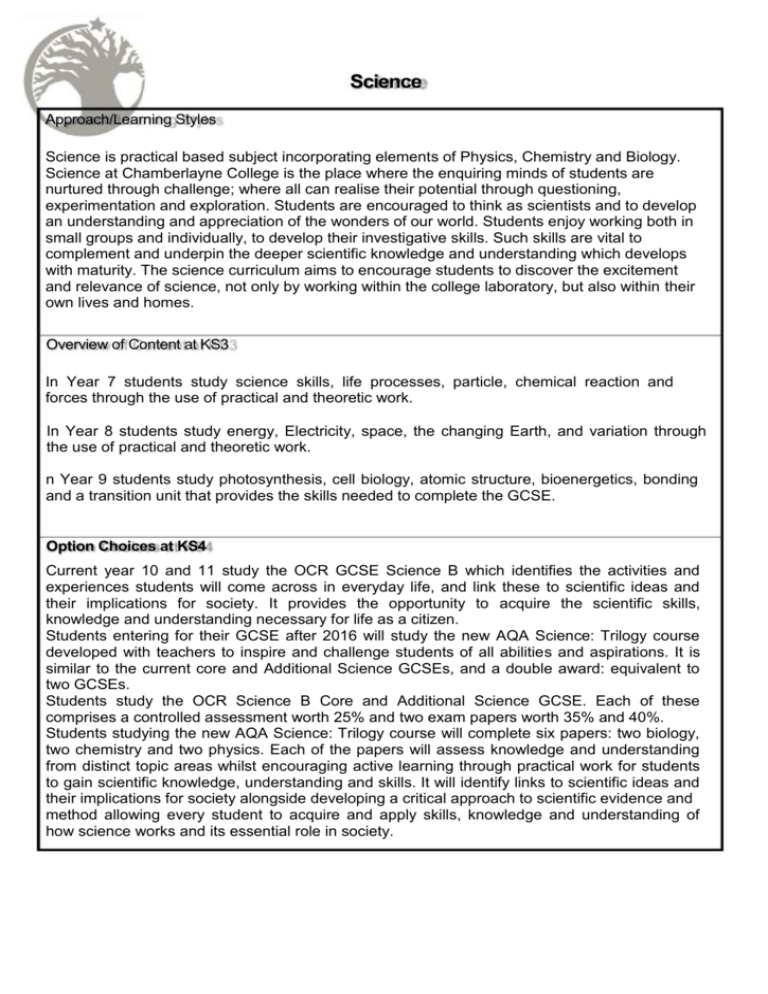
Science Approach/Learning Styles Science is practical based subject incorporating elements of Physics, Chemistry and Biology. Science at Chamberlayne College is the place where the enquiring minds of students are nurtured through challenge; where all can realise their potential through questioning, experimentation and exploration. Students are encouraged to think as scientists and to develop an understanding and appreciation of the wonders of our world. Students enjoy working both in small groups and individually, to develop their investigative skills. Such skills are vital to complement and underpin the deeper scientific knowledge and understanding which develops with maturity. The science curriculum aims to encourage students to discover the excitement and relevance of science, not only by working within the college laboratory, but also within their own lives and homes. Overview of Content at KS3 In Year 7 students study science skills, life processes, particle, chemical reaction and forces through the use of practical and theoretic work. In Year 8 students study energy, Electricity, space, the changing Earth, and variation through the use of practical and theoretic work. n Year 9 students study photosynthesis, cell biology, atomic structure, bioenergetics, bonding and a transition unit that provides the skills needed to complete the GCSE. Option Choices at KS4 Current year 10 and 11 study the OCR GCSE Science B which identifies the activities and experiences students will come across in everyday life, and link these to scientific ideas and their implications for society. It provides the opportunity to acquire the scientific skills, knowledge and understanding necessary for life as a citizen. Students entering for their GCSE after 2016 will study the new AQA Science: Trilogy course developed with teachers to inspire and challenge students of all abilities and aspirations. It is similar to the current core and Additional Science GCSEs, and a double award: equivalent to two GCSEs. Students study the OCR Science B Core and Additional Science GCSE. Each of these comprises a controlled assessment worth 25% and two exam papers worth 35% and 40%. Students studying the new AQA Science: Trilogy course will complete six papers: two biology, two chemistry and two physics. Each of the papers will assess knowledge and understanding from distinct topic areas whilst encouraging active learning through practical work for students to gain scientific knowledge, understanding and skills. It will identify links to scientific ideas and their implications for society alongside developing a critical approach to scientific evidence and method allowing every student to acquire and apply skills, knowledge and understanding of how science works and its essential role in society.

